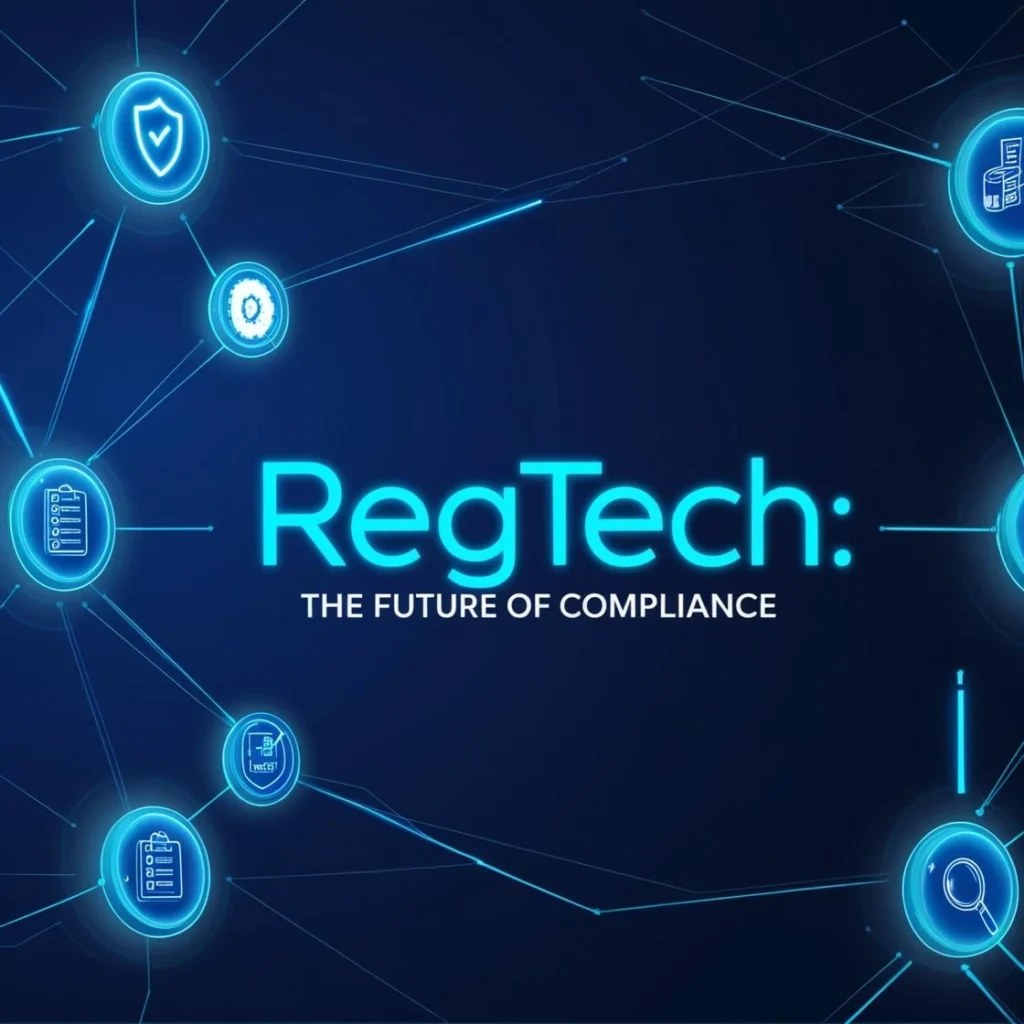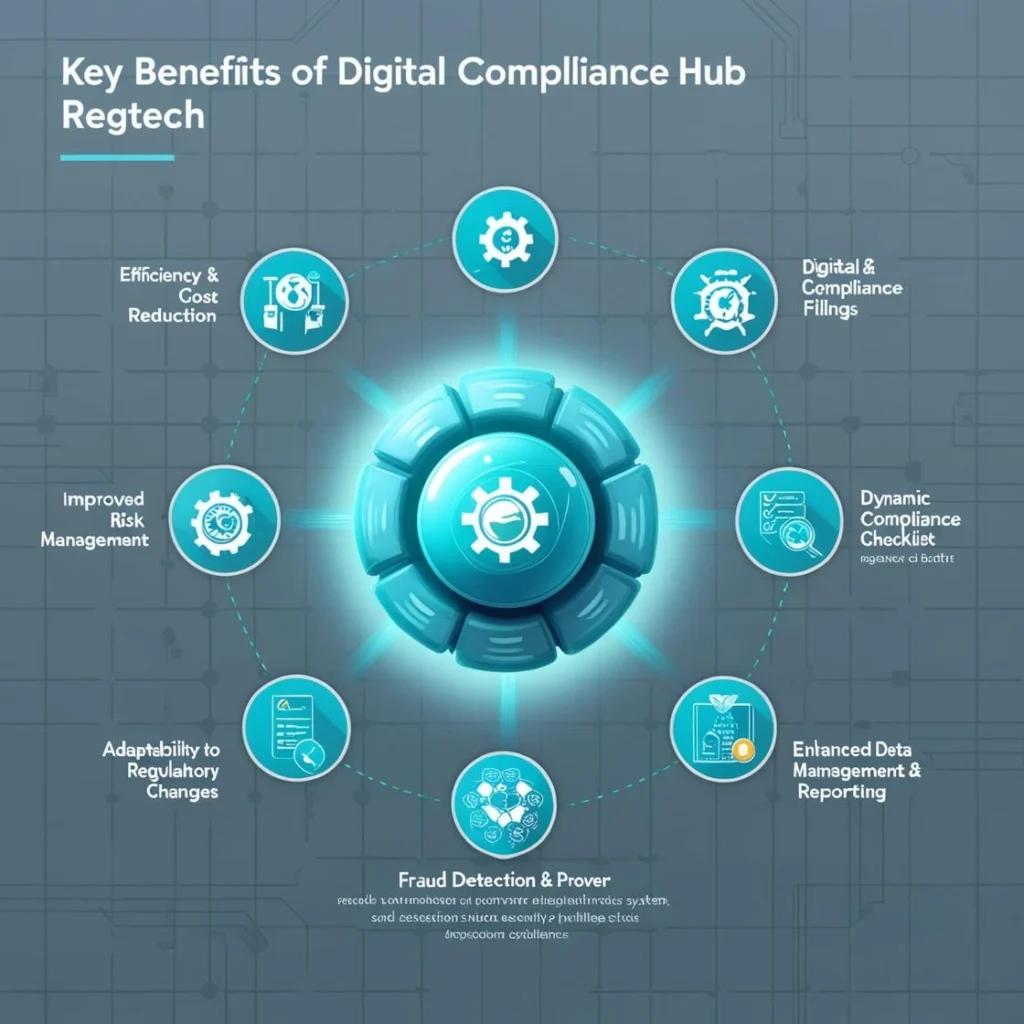
*Image is AI-generated
Emerging as a transformative force in governance, Regulatory Technology (RegTech) reimagines compliance frameworks through digital innovation. This rapidly maturing field employs breakthrough tools—from AI-driven analytics and blockchain architectures to machine learning models—to automate adherence processes for modern enterprises.
The most significant applications of RegTech emerge in tightly regulated domains where compliance complexity demands precision. Financial institutions, healthcare networks, energy conglomerates, and sectors like aerospace and pharmaceuticals increasingly deploy these solutions to navigate intricate compliance landscapes while boosting operational transparency.
Modern organizations confront unprecedented regulatory pressures, evidenced by a 500% surge in policy updates over the past decade. A 2018 Thomson Reuters analysis revealed regulators issue new mandates every seven minutes, accompanied by escalating penalties illustrated by the SEC’s $4.3 billion enforcement recoveries and the FCA’s record fines in 2019. This climate of heightened accountability has propelled RegTech’s growth, equipping businesses with adaptive tools to manage evolving compliance demands proactively.
Understanding RegTech
The rise in digital products has increased data breaches, cybersecurity threats, and other fraudulent activities, the community of tech companies dealing with these challenges is called RegTech.
RegTech, which is sometimes mistakenly categorized as a subset of FinTech, has up until now concentrated on digitizing manual reporting and compliance procedures in the financial services sector, such as in the context of knowing your customer requirements. Its use in broader sectors, like energy,[2] demonstrates that RegTech is a subset of GovTech.
Regtech tools aim to track online transactions in real time to spot problems or anomalies in the realm of digital payments. The financial institution is notified of any anomalies so they can investigate and assess whether fraud is occurring. Organizations can reduce the risks and expenses related to lost money and data breaches by spotting possible threats to financial security early on.
History of RegTech
When the world was in the financial chaos of 2008. Lehman Brothers had imploded, and the federal government took over Fannie and Freddie, and money-market funds broke the bunk. The world was in one of the worst financial crises since the great depression.
The federal government needed to rebuild the trust of people in the financial institutions, which meant ushering in a new era of regulatory oversight.
Why is RegTech Important?

*Image is AI-generated
As regulations are increasing and getting complex RegTech’s importance is also increasing rapidly due to the following reasons:
Efficiency and Cost Reduction
As RegTech is associated with compliance by automation processes that were previously done by humans and time-consuming this reg tech not on saves cost but also increases efficiency, allowing businesses to allocate resources strategically
Improved Risk Management
RegTech’s proactive approach to risk management helps companies reduce compliance issues. Using advanced analytics and machine learning, RegTech tools find potential risks and vulnerabilities within a corporation or business.
Adaptability to Regulatory Changes
The regulatory environment is always changing, particularly in the financial industry. RegTech solutions assist businesses in keeping pace with new regulations, allowing them to maintain compliance with minimal interruptions. This flexibility is especially important for fintech companies that navigate uncertain regulatory zones.
Enhanced Data Management and Reporting
RegTech enhances the ability to manage data effectively, making sure that sensitive information is protected and adheres to data protection laws. Additionally, it streamlines the process of creating and submitting regulatory reports, which boosts both accuracy and promptness.
Key Technologies Behind RegTech
- In 2025, RegTech is propelled by pivotal technologies that streamline compliance and bolster risk management, including AI and Machine Learning for automating intricate tasks and predicting compliance trends.
- Cloud Computing facilitates flexible, cost-effective, and secure compliance solutions, allowing for easy integration with current systems.
- Blockchain technology enhances KYC and AML processes, while Big Data Analytics and Natural Language Processing improve data analysis and regulatory document interpretation, collectively ensuring robust compliance and risk management.
Use Cases of RegTech
RegTech applications are revolutionizing compliance and risk management, particularly in fraud detection through AI-driven real-time monitoring. They also automate Know Your Customer (KYC) and Anti-Money Laundering (AML) processes, improving efficiency in customer verification and transaction oversight. Automated regulatory reporting reduces manual workloads and errors.
Benefits of RegTech
The benefits of RegTech include significant cost savings, enhanced accuracy, and faster compliance with regulatory changes. Real-time monitoring helps businesses adapt quickly, while improved security measures bolster trust in financial transactions.
Challenges and Limitations
However, challenges remain, such as integrating new technologies with legacy systems, regulatory acceptance, and data privacy concerns. Additionally, the initial investment for these technologies can be a barrier for some organizations.
Future of RegTech
The future of Regulatory Technology (RegTech) is promising, with projections estimating market growth to $60.77 billion by 2030. The impact of artificial intelligence and automation on compliance is expected to rise, alongside increased collaboration between regulatory bodies and RegTech companies to improve compliance solutions.
Conclusion
RegTech has become indispensable for organizations grappling with the intricate web of modern regulatory requirements. By harnessing cutting-edge innovations like artificial intelligence, machine learning algorithms, and blockchain technology, this field delivers precise, streamlined compliance solutions while reducing operational costs. As regulatory frameworks grow more intricate and dynamic globally, RegTech’s value proposition intensifies, with exponential market expansion projected through 2030. Despite existing implementation challenges including integration complexities, standardization hurdles, and data security considerations the sector shows transformative potential. Synergistic partnerships between governing bodies and tech innovators are refining compliance ecosystems, positioning RegTech as an essential component of sustainable corporate governance strategies in the digital age.